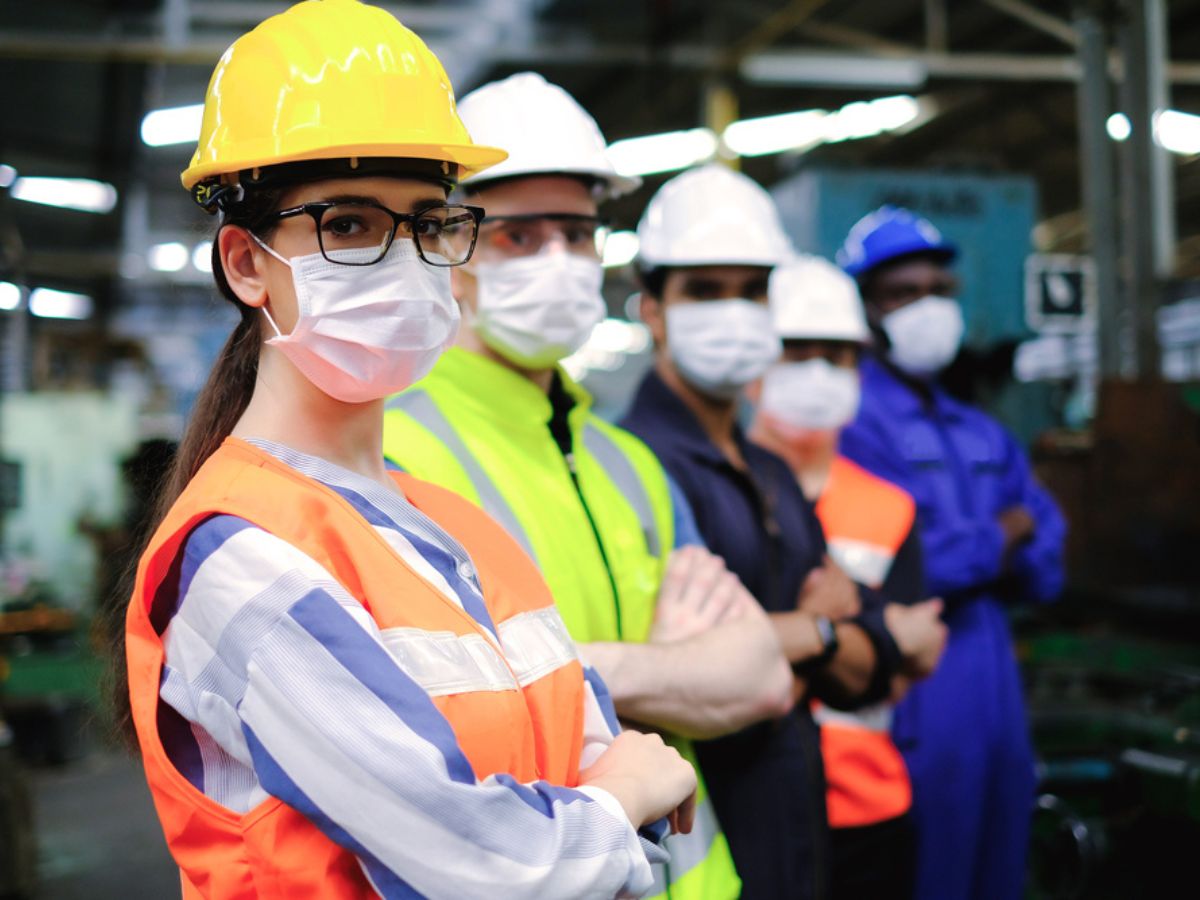Affordable Industrial Workwear Enhancing Safety Without Breaking the Bank
In the industrial sector, safety is paramount. Workers in various industries, from construction to manufacturing, face numerous hazards daily. To protect them, providing high-quality, durable, and functional workwear is essential. However, ensuring safety shouldn’t come at an exorbitant cost. Affordable industrial workwear is not just a cost-effective solution but a critical element in maintaining a safe and efficient work environment. This article explores the importance of affordable industrial workwear, its benefits, key considerations when choosing workwear, and answers frequently asked questions on the subject.
The Importance of Industrial Workwear
Industrial workwear is designed to protect workers from various hazards, including physical injuries, chemical exposure, extreme temperatures, and visibility-related risks. The primary functions of industrial workwear include:
- Protection:
Workwear provides a barrier against workplace hazards, such as sharp objects, chemicals, fire, and heavy machinery.
- Durability:
High-quality materials ensure that the workwear withstands harsh conditions and frequent use.
- Comfort:
Comfortable workwear enhances worker productivity and reduces fatigue.
- Compliance:
Meeting safety regulations and standards is crucial for avoiding legal issues and ensuring worker safety.
Benefits of Affordable Industrial Workwear
Cost-Effectiveness: Affordable workwear reduces the financial burden on businesses, allowing them to allocate resources to other critical areas such as training and safety programs.
Employee Satisfaction: Providing workers with proper, comfortable, and protective gear boosts morale and job satisfaction.
Improved Safety: Cost-effective does not mean compromising on quality. Affordable workwear can still offer excellent protection, thereby reducing workplace accidents and injuries.
Enhanced Productivity: When workers are safe and comfortable, they are more likely to be productive and efficient in their tasks.
Key Considerations When Choosing Industrial Workwear
Material Quality: Look for materials that offer durability, protection, and comfort. Common materials include cotton, polyester, and specialized fabrics like flame-resistant (FR) and high-visibility (hi-vis) materials.
Functionality: Consider the specific needs of the job. For example, construction workers might need reinforced knees and elbows, while electricians may require FR clothing.
Fit and Comfort: Properly fitting workwear is crucial. Ill-fitting clothing can be uncomfortable and hazardous.
Compliance: Ensure the workwear meets industry standards and regulations.
Cost: Balance cost with quality. While affordability is important, never compromise on safety and durability.
Supplier Reputation: Choose suppliers known for their reliable and high-quality products.
Types of Industrial Workwear
Coveralls and Overalls: These provide full-body protection and are commonly used in construction, automotive, and chemical industries.
- Jackets and Coats:
Essential for outdoor and cold-weather work, offering warmth and protection.
Pants and Trousers:
Durable and often reinforced at stress points for added protection.
- Shirts and Tops:
Available in various styles, including FR and hi-vis options.
- Footwear:
Steel-toe boots and other protective footwear are crucial for preventing foot injuries.
- Gloves:
Protect hands from cuts, abrasions, chemicals, and extreme temperatures.
- Headgear:
Hard hats, helmets, and caps offer head protection.
- Hi-Vis Clothing:
Essential for workers in low-light or high-traffic areas to enhance visibility.
Ensuring the Longevity of Workwear
Proper Care and Maintenance: Follow manufacturer instructions for washing and maintenance to extend the life of the workwear.
- Regular Inspections:
Check for wear and tear regularly and replace damaged items promptly.
- Appropriate Storage:
Store workwear in a clean, dry place to prevent damage and degradation.
FAQs About Affordable Industrial Workwear
Why is industrial workwear important?
Industrial workwear is crucial for protecting workers from various workplace hazards, ensuring their safety, and complying with safety regulations.
Can affordable workwear still provide adequate protection?
Yes, affordable workwear can offer excellent protection if it meets industry standards and is made from quality materials.
What materials are commonly used in industrial workwear?
Common materials include cotton, polyester, flame-resistant fabrics, and high-visibility materials.
How do I choose the right size for industrial workwear?
Refer to the manufacturer’s sizing charts and ensure a proper fit to avoid discomfort and potential hazards.
How often should workwear be replaced?
Workwear should be inspected regularly and replaced when it shows signs of wear and tear, damage, or reduced effectiveness.
Is it necessary for all industrial workwear to be flame-resistant?
Not all industrial workwear needs to be flame-resistant. The necessity depends on the specific hazards present in the workplace.
How can I ensure my workwear is compliant with safety regulations?
Choose workwear from reputable suppliers who adhere to industry standards and regulations.
What are the benefits of high-visibility workwear?
High-visibility workwear enhances the visibility of workers in low-light or high-traffic areas, reducing the risk of accidents.
Are there specific maintenance tips for industrial workwear?
Follow the manufacturer’s care instructions, inspect regularly for damage, and store workwear properly to maintain its protective qualities.
Can I find affordable industrial workwear that is both durable and comfortable?
Yes, many affordable options offer durability and comfort. Prioritize quality materials and proper fit when choosing workwear.
Conclusion
Affordable industrial workwear plays a vital role in ensuring worker safety and productivity without imposing a financial strain on businesses. By carefully selecting quality materials, ensuring a proper fit, and maintaining compliance with safety standards, companies can provide their workers with the protection they need at a reasonable cost. Regular maintenance and inspections further enhance the longevity and effectiveness of workwear, making it a wise investment for any industrial operation.






